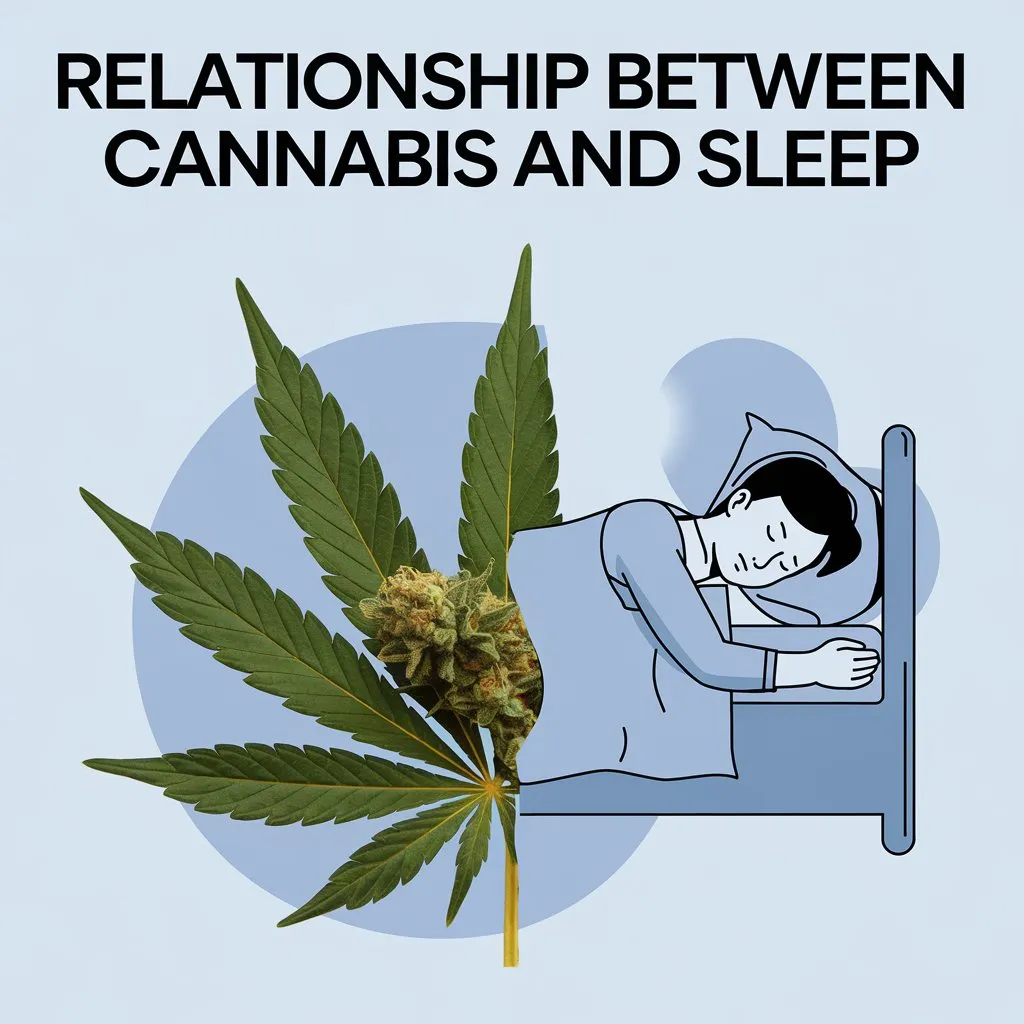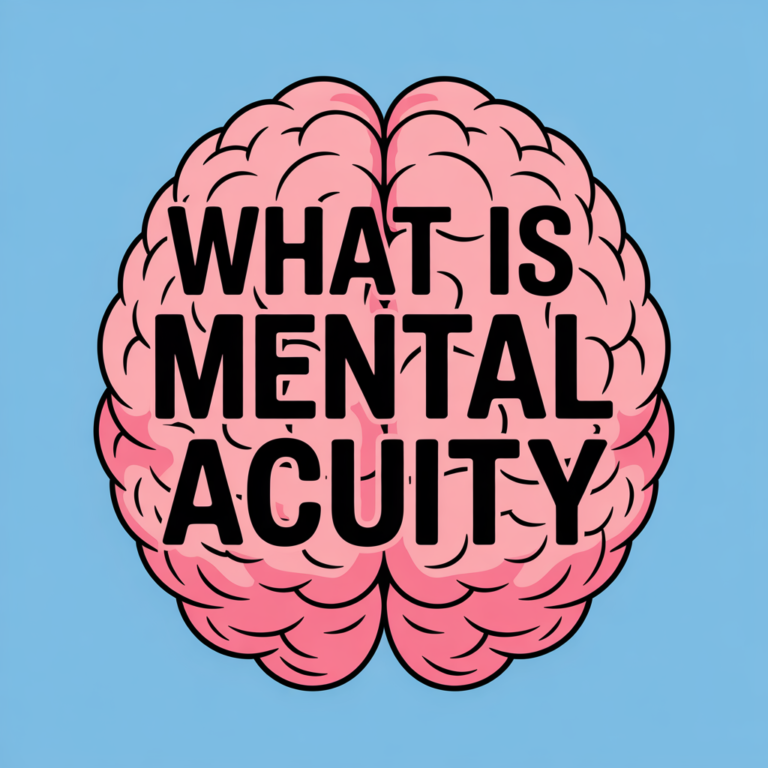Almost everyone has experienced the frustration of waking up after a night filled with tossing and turning, only to feel groggy and unrested the next day. For those who continue to sleep badly at night, finding an effective remedy becomes a top priority. Chronic insomnia affects about 10% of the population, leading people to search for solutions in the multi-billion-dollar industry of sleep aids. While over-the-counter and prescription sleep aids are common, they often come with side effects, build tolerance, and may not promote natural sleep patterns. As a result, many individuals turn to alternative solutions, such as cannabis, to explore their potential impact on sleep quality. But does daytime cannabis use help when you continue to sleep badly at night?
Understanding the Relationship Between Cannabis and Sleep

The connection between cannabis and sleep is complex. The cannabis plant contains a multitude of compounds, with cannabinoids being the most notable. The two primary cannabinoids are tetrahydrocannabinol and cannabidiol (CBD), each with distinct effects on the body. THC is known for its psychoactive properties, while CBD is typically associated with calming and anti-inflammatory effects.
How Daytime Cannabis Can Impact Nighttime Sleep
A recent study highlighted that individuals who used cannabis during the day after experiencing a poor night’s sleep reported improvements in same-night sleep quality. These findings were statistically significant and held practical value, even though the outcomes were self-reported and lacked confirmation from electroencephalographic (EEG) data. Participants noted benefits such as reduced time taken to fall asleep, longer sleep duration, and fewer nighttime awakenings. Notably, those who initially suffered from severe sleep problems reported the most significant improvements.
However, it’s essential to note that the improvements in sleep were dependent on the continued use of cannabis. This indicates that the effectiveness of daytime cannabis use is temporary and primarily influences sleep on the same day.
The Science Behind Cannabis and the Sleep-Wake Cycle
The body’s natural sleep-wake cycle is regulated by various factors, including the endocannabinoid system (ECS). The ECS comprises endogenous cannabinoids (endocannabinoids) and their receptors, which play a crucial role in maintaining homeostasis. The two primary endocannabinoids, anandamide (AEA) and 2-arachidonoylglycerol (2-AG), have different roles and fluctuate throughout the day.
The Role of Endocannabinoids in Sleep
AEA levels peak during the night, contributing to sleep initiation and maintenance. On the other hand, 2-AG levels are higher during the day and are associated with wakefulness. This natural rhythm ensures a balance between periods of alertness and rest.
Cannabinoids from cannabis mimic the action of these natural compounds by interacting with cannabinoid receptors in the brain. Depending on which receptor is activated, different effects on sleep architecture can be observed. For example, stimulating one type of receptor may promote non-REM sleep while inhibiting REM sleep, which is crucial for cognitive function and emotional regulation.
Benefits of Daytime Cannabis Use
Using cannabis during the day may help reset the body’s natural sleep-wake cycle for those who continue to sleep badly at night. The daytime use of cannabis can increase the release of AEA and stimulate the brain region that promotes the onset of non-REM sleep. This can lead to:
- Improved Sleep Quality: Individuals report feeling more rested after using cannabis during the day, attributing it to fewer disturbances and longer sleep duration.
- Reduced Nightmares: For people who suffer from conditions such as PTSD, daytime cannabis use has been associated with fewer nightmares and improved overall sleep.
- Decreased Sleep Latency: Falling asleep faster is a common benefit reported by those who use cannabis during the day, potentially reducing the stress and anxiety associated with bedtime.
- Fewer Nighttime Awakenings: Continuous sleep throughout the night contributes to better sleep efficiency and more restorative rest.
Why Cannabis Before Bed May Not Be Ideal

Despite the reported benefits of using cannabis during the day, using it right before bedtime can be counterproductive. When individuals use cannabis as a nighttime sleep aid, it can lead to significant reductions in REM sleep. REM sleep is the stage where most dreaming occurs, and it plays a vital role in memory consolidation and emotional processing. Chronic reduction in REM sleep can result in:
- Impaired Cognitive Function: REM sleep deprivation has been linked to difficulties in concentration, learning, and problem-solving.
- Mood Alterations: Reduced REM sleep can lead to irritability, depression, and overall mood instability.
Moreover, a study found that individuals who use cannabis immediately before bed were nearly twice as likely to develop problematic patterns of cannabis use. This highlights the importance of understanding the balance between using cannabis as a tool for sleep improvement and avoiding dependency.
How Daytime Cannabis Use Can Help You Sleep Badly at Night
When you continue to sleep badly at night, daytime cannabis use may provide a more balanced approach. By consuming cannabis during the day, users can stimulate the endocannabinoid system in a way that supports a natural sleep-wake cycle. Here’s how:
Supporting Non-REM Sleep
Non-REM sleep is a critical phase of deep sleep that allows the body to repair itself and restore energy. Daytime cannabis use facilitates the release of adenosine in the brain, a neurotransmitter that promotes non-REM sleep. Adenosine levels increase as we remain awake, creating a natural pressure to sleep. When cannabis is used during the day, it can amplify this process, making it easier to fall into non-REM sleep at night.
Promoting Relaxation and Reducing Anxiety
Anxiety is a common contributor to poor sleep. Using cannabis during the day, particularly strains high in CBD, can reduce stress and anxiety, leading to a calmer mind by the time bedtime rolls around. This can be especially beneficial for those who continue to sleep badly at night due to racing thoughts or stress-related insomnia.
Potential Risks and Considerations
While daytime cannabis use can help improve sleep, it’s essential to understand the potential risks:
Tolerance Development
Like most substances, repeated use of cannabis can lead to tolerance. This means that over time, the body may require higher doses to achieve the same effects. Tolerance can undermine the long-term effectiveness of cannabis as a sleep aid and increase the risk of dependency.
Possible Side Effects
Cannabis use can lead to side effects such as daytime fatigue, dry mouth, dizziness, and changes in appetite. To mitigate these risks, users should start with low doses and adjust as needed under medical supervision.
Legal and Safety Considerations
The legal status of cannabis varies by region, and its use may come with restrictions. Users should be aware of local laws and regulations regarding cannabis use. Additionally, individuals should never operate heavy machinery or drive after using cannabis.
Tips for Responsible Daytime Cannabis Use
To optimize the potential benefits of daytime cannabis use for better nighttime sleep, consider the following guidelines:
Start with Low Doses
Begin with a low dose to assess how your body responds. Gradually adjust as needed to find the optimal amount that promotes relaxation without causing daytime fatigue or impairment.
Choose the Right Strains
Strains high in CBD and low in THC are often better suited for daytime use. CBD has calming and anti-anxiety properties without the psychoactive effects associated with THC. This can help users remain functional and alert throughout the day.
Monitor Usage and Effects
Keep track of your cannabis use and how it affects your sleep patterns. Journaling can help identify trends and make it easier to adjust your routine as needed.
Seek Professional Guidance
Consult with a healthcare professional before starting or adjusting cannabis use, especially if you have pre-existing health conditions or are taking other medications.
What to Expect When You Start Using Daytime Cannabis
When incorporating daytime cannabis use into your routine, it’s important to have realistic expectations. Here’s what many users experience:
Gradual Improvements
Some users notice immediate changes, while others may require consistent use over a week or more to see significant benefits. The effects can vary depending on the strain, dosage, and individual body chemistry.
Enhanced Sleep Duration and Quality
Users often report falling asleep faster, staying asleep longer, and waking up feeling more refreshed. This improvement can be especially beneficial for those who continue to sleep badly at night and have tried various other sleep aids without success.
Reduced Nighttime Disturbances
Many users find that they experience fewer interruptions during the night, which helps create a more restful and restorative sleep cycle.
Why Timing Matters: The Science of Daytime vs. Nighttime Use
The timing of cannabis use plays a crucial role in its effectiveness as a sleep aid. Using cannabis during the day helps align the body’s natural rhythms, whereas using it right before bed may disrupt normal sleep architecture.
The Impact on REM and Non-REM Sleep
As previously mentioned, daytime use can promote non-REM sleep, allowing the body to rest deeply. However, using cannabis before bedtime can reduce REM sleep, which is necessary for memory and cognitive function. By adjusting the timing of cannabis use to earlier in the day, users can experience sleep benefits without the negative impact on REM sleep.
Hormonal Regulation and the Circadian Rhythm
Cannabis use during the day can help regulate the release of hormones like cortisol and melatonin, which are essential for maintaining a healthy circadian rhythm. This, in turn, can lead to better sleep onset and quality during the night.
Is Daytime Cannabis a Sustainable Solution?
For those who continue to sleep badly at night, daytime cannabis use can offer a viable solution, but it should be part of a comprehensive approach to improving sleep. Lifestyle changes such as maintaining a consistent sleep schedule, reducing screen time before bed, and practicing relaxation techniques should also be incorporated for the best results.
Final Thoughts
Using cannabis to sleep better is not a one-size-fits-all solution. While some may find that daytime cannabis use helps when they continue to sleep badly at night, others may need to explore additional methods or adjustments. The key lies in understanding how cannabis affects your unique sleep cycle and finding a balanced approach that promotes restorative rest without compromising daytime functionality or REM sleep.
In conclusion, daytime cannabis use shows promise as a tool for improving sleep for those who continue to sleep badly at night. By leveraging the body’s endocannabinoid system and timing cannabis use to promote natural sleep-wake cycles, individuals can potentially find relief from chronic sleep disturbances. However, responsible use, awareness of potential risks, and consultation with a healthcare provider are essential to ensure safe and effective outcomes.
FAQs
Can You Use Cannabis for Sleep Long Term?
Long-term use of cannabis for sleep can be effective for some individuals, but it comes with potential downsides. Over time, tolerance to cannabis can develop, which may lead users to increase their dosage to achieve the same effects. This can potentially lead to dependency. Additionally, chronic use may impact REM sleep, which is crucial for cognitive function and overall health. It’s essential to consult with a healthcare provider to determine if long-term cannabis use is right for you and to explore possible alternatives or complementary sleep strategies.
What Is the Best Cannabis Option for Sleep?
The best cannabis option for sleep typically includes strains or products with higher levels of CBD and moderate to low levels of THC. CBD-dominant strains are known for their calming effects without the psychoactive properties of THC, which can be disruptive for some people. Indica strains are commonly recommended for their relaxing properties, making them ideal for nighttime use. Edibles, tinctures, or oils with a balanced CBD
ratio can also be effective in promoting better sleep.
Does Cannabis Affect No Sleep?
Cannabis can affect individuals differently when it comes to sleeplessness. For some, cannabis use—especially strains high in THC—may help induce drowsiness and promote sleep. However, others may experience disrupted sleep architecture, particularly if cannabis is used right before bed. High-THC strains can lead to reduced REM sleep, which may result in less restorative rest over time. For best results, timing and the type of cannabis product used are crucial.
Is Cannabis Oil Good for Sleep?
Yes, cannabis oil can be beneficial for sleep, especially if it contains a balanced ratio of CBD and THC. CBD is known for its calming and anti-anxiety properties, which can help promote relaxation and improve sleep onset. THC may also aid in sleep induction, though it should be used with caution to avoid potential disruptions to REM sleep. Full-spectrum cannabis oils that include other cannabinoids and terpenes may offer enhanced sleep benefits due to the entourage effect.
What Is the Side Effect of Cannabis Oil?
The side effects of cannabis oil can vary based on the dosage, individual tolerance, and specific cannabinoids present. Common side effects include drowsiness, dry mouth, dizziness, and changes in appetite. High doses of THC-containing oil can lead to psychoactive effects such as impaired memory, anxiety, or paranoia. Long-term use may lead to tolerance, dependency, or disruptions in normal sleep cycles. It’s important to start with a low dose and consult with a healthcare professional before use.
How Much Cannabis Oil Should I Take for Insomnia?
The appropriate dosage of cannabis oil for insomnia varies depending on factors such as body weight, tolerance, and the specific product used. A general starting point for CBD oil is between 10-20 mg per day, while THC should be used more cautiously due to its psychoactive properties. It’s recommended to start with a low dose and gradually increase as needed to find the optimal amount that improves sleep without unwanted side effects. Consulting with a healthcare provider can help tailor the dosage to your individual needs.
How Long Before Bed Should I Take Cannabis Oil?
The timing for taking cannabis oil for sleep is important for optimal effectiveness. Generally, taking cannabis oil 30 minutes to 1 hour before bed is recommended to allow sufficient time for the effects to take place. The onset time can vary depending on the method of consumption; sublingual tinctures may act faster (15-30 minutes) compared to oral ingestion like capsules or edibles (30-90 minutes). Adjust the timing based on how your body responds to find the most effective schedule.
What Is the Best Cannabis Ratio for Sleep?
A balanced CBD ratio is often considered ideal for sleep, with a common preference being 1:1 or 2:1 (CBD to THC). This ratio allows users to experience the sedative and calming effects of both cannabinoids while minimizing the psychoactive impact of THC. Higher CBD ratios, such as 5:1 or 10:1, can also be effective for those looking for relaxation and sleep benefits without the potential for intoxication or side effects from THC.
Can You Take Cannabis Oil Every Day?
Yes, you can take cannabis oil daily, but it is important to do so under guidance to avoid potential side effects or tolerance buildup. Regular use of CBD oil is generally considered safe and non-habit forming, while daily THC use may lead to tolerance, dependency, and potential side effects such as disrupted sleep cycles or mood changes. A healthcare provider can help you assess whether daily use is suitable for your situation and suggest appropriate dosing strategies.




